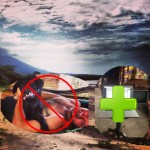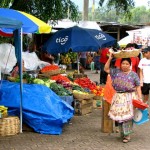“I tell you this will all my heart,” she tells them. “Sometimes our problems choke us and make us feel alone, but I'm here to help you if you ever need it because I love all of you.”
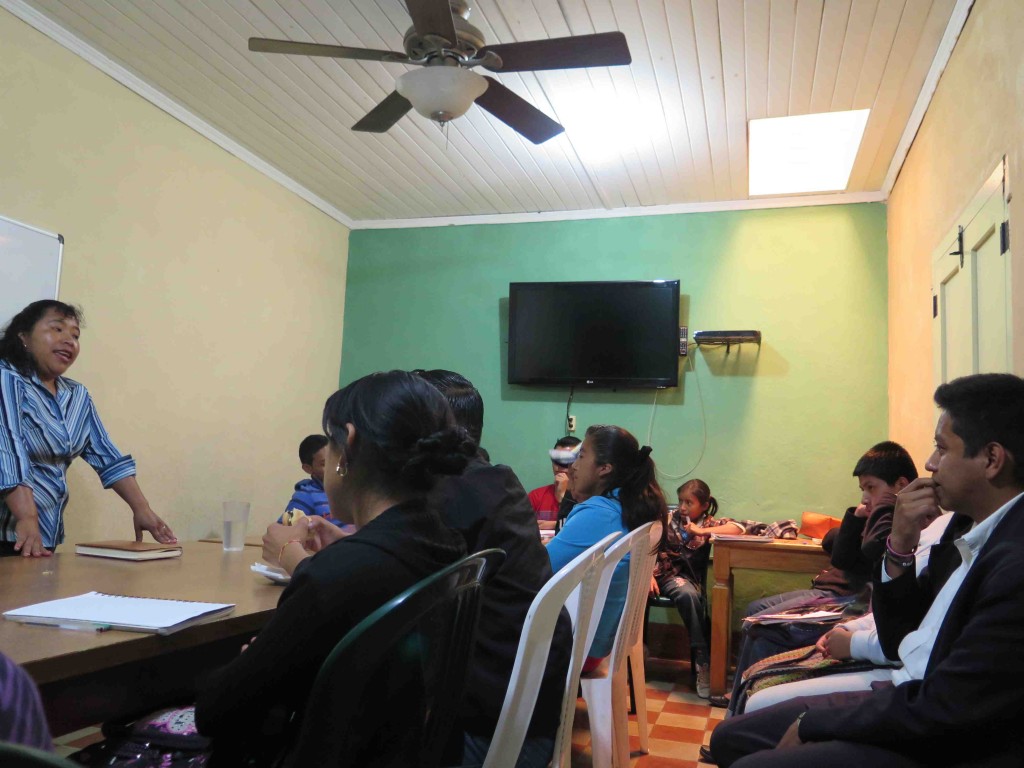
“I’m not going to tell you the story of something that happened to my sister,” Doña Marí says, standing before a semicircle of teenagers seated around a wooden table dominating most of the small room. “I’m not going to tell you the story of something that happened to my aunt or cousin.”
“No,” she says, a halting hand raised, “This is something personal. This is something that happened to me.”
I’m at the Integral Heart Foundation’s philosophy class, a class I started in 2009 for 9th graders at a school in Jocotenango, Guatemala. Débora Prieto, the Spanish co-founder of IH now runs the class (Founded with her husband, Mick Quinn). Five years later, it is still going strong. Débora is not teaching today. Instead, IH’s social worker, Doña Marí, is guest lecturing on the subject of domestic violence.
Symptomatic of the machismos culture, Guatemala has one of the highest rates of murder of violence against women in the world. Based on the Human Rights Watch conclusions, “Violence against women is a chronic problem in Guatemala” (2011). Femicide occurs at a rate of two women killed per day (Unicef).
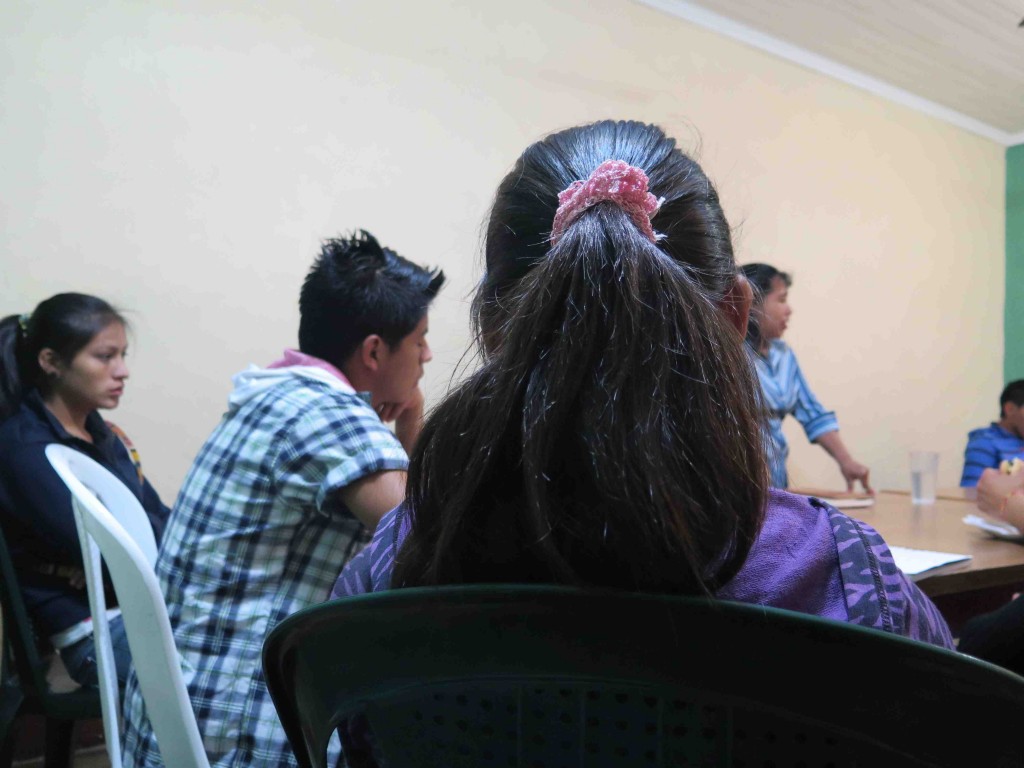
Everything about the room I’m in is unbelievable. To my left are Maria and Carmen, two sisters who in 2009 lived and gathered recyclables in a garbage dump outside of Ciudad Vieja, Guatemala. Today the sisters are not only doing well in school, they are learning critical thinking, Plato, Aristotle, Buddhist Dharma, meditation, and most important lesson that Guatemala has been slow to teach its daughters—you have dignity and rights and men are not allowed to hurt you.
“My mother was very strict,” Doña Marí tells the unlikely students before her. “She hit me like my father hit her.”
The young man to my right slaps his hands together to make a slapping sound. A few timid giggles cheep about the room. Marí gives him a weathered smile and continues. “When my husband used to beat me,” she says, “I thought it was my fault. I thought I was bad. I thought I deserved it.”
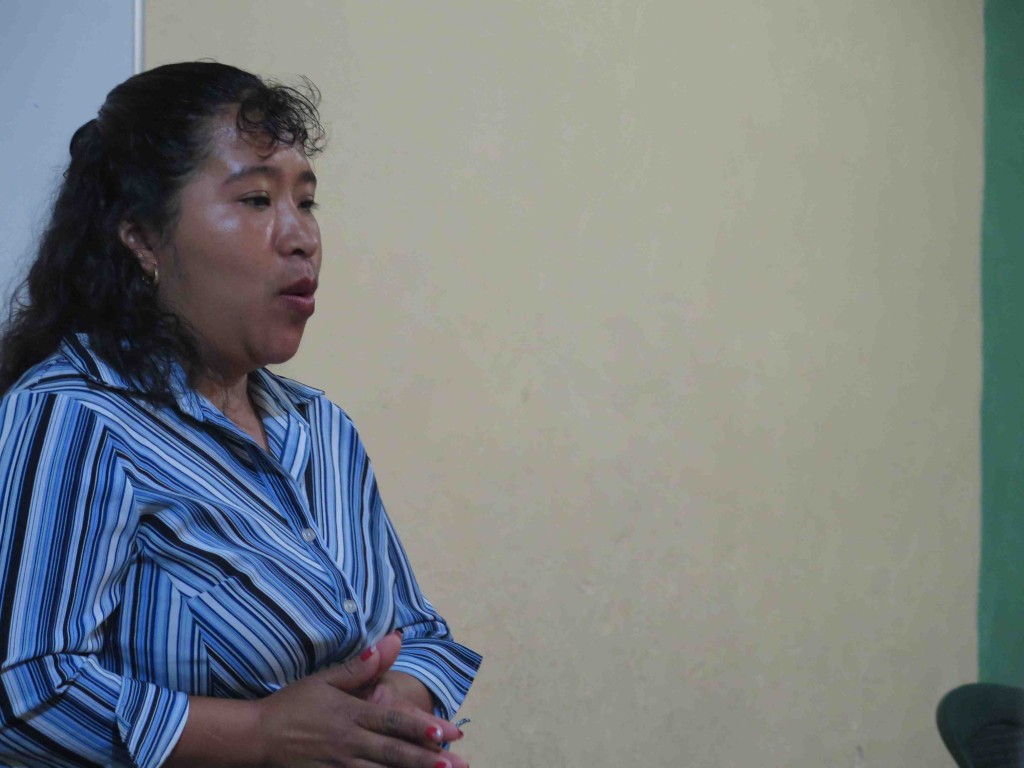
She tells the students about the depression she sank into as an abused mother of three young children. She tells them it was horrible. She stopped eating, stopped showering and thought often about ending her life. She credits her three young children as keeping her alive.
The children hear about how her grandmother used to throw bottles at her. She tells them about her father’s alcoholism. Tells them about a time when, drunk, he beat her, tore her blouse and tried to rape her. She was eleven when this happened. She was saved by a car driving through the alley, which stopped to save her instead of just driving by. When her mother asked her father why their daughter was bruised he told her that a cat had scratched her.
Marí credits meeting Débora as a turning point in her life. From her she gained the courage to leave her abusive husband and care for her kids herself. She started working for IH as a maid, but now is directly responsible for overseeing the education of dozens of at risk youth.
Carmen’s cell phone rings and Marí uses the snickering interruption to tell the students why she has told them her tale. “I tell you this so that you can learn from my experience.”
Marí had her first child when she was 16. In Guatemala over a quarter of women aged 20-24 became mothers before they were 18 (REFworld).
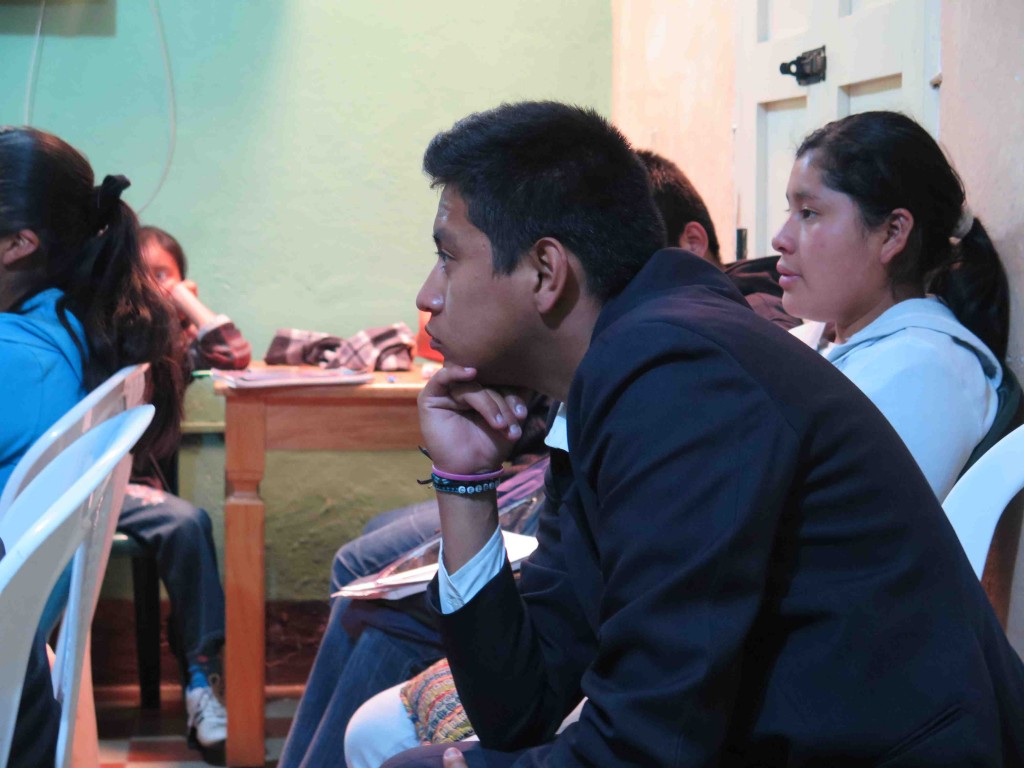
I watch each listening face. The story she tells them is not abstract or removed for this group. They have all endured hardships few of us could relate to. When you want to see strength, courage and faith fueled hope, find out where poor people are living.
“It took me a lot to overcome my situation,” says Doña Marí, “Everyone here has been given a great opportunity. Al provecho—Seize it.”
“I tell you this will all my heart,” she tells them. “Sometimes our problems choke us and make us feel alone, but I’m here to help you if you ever need it because I love all of you.”
She addresses the young women in the room, “Sometimes men lie. They say they are single, when really, they are married. These men wander about the country, making single teenage mothers whom they abandon.”
She addresses the young men, “If your father did not live up to the role of being a father, be better than your father. Treat women with respect and be there for your children.”
Outside church bells ring. 11am. Seven young men and eight young women shuffle in anticipation of the class’s conclusion. Rusty red and yellowed white linoleum tiles dot the floor in a checkered pattern. “They’re won’t be class during Holy Week,” Marí tells them as she passes around this week’s attendance sheet. One student jokes about telling his mom there is class so that he can get out of the house.
I tell María and Carmen hola from Charlie, my colleague who was most instrumental in giving these girls options outside a life in a garbage dump which for young girls often transitions to life in the sex trade.
That’s what is most surprising about this room. An unlikely set of students with options where before there were few. Experience has taught me how unlikely it is that all fifteen will escape the vicious cycles of poverty and abuse they were born into. But from where I’m sitting today, there is little to be but hopeful. They all have good people at The Integral Heart Foundation to look out for them and each of them wears the somber expression of adult gravity that says they are serious about surprising the odds.
***
This blog is spearheading Travel Bloggers Without Borders, an effort to raise funding to put 55 students in school for one year with The Integral Heart Foundation. If you are able to contribute, you will receive unlimited high-fives from all staff members of IH for one year. Click here and help with what you can.


